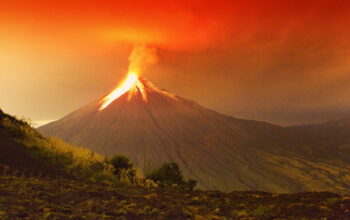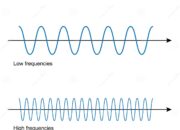In the realm of scientific inquiry, funding constraints can often feel akin to a chisel grazing against the nuanced surface of a delicate marble sculpture. Budget cuts, like a sculptor’s abridged tools, can inadvertently impede the emergence of profound discoveries from the raw stone of empirical evidence. In France, the recent decision to curtail funding across various scientific domains has stirred a maelstrom of apprehension among researchers and policy-makers alike. This essay delves into the ramifications of this austerity, drawing a vivid picture of the interplay between fiscal prudence and scientific advancement.
The French scientific community stands on the precipice of an era that may redefine its commitment to exploration and innovation. It is imperative to contextually understand the significance of these cuts, as they affect diverse sectors, including climate research, health sciences, and aerospace endeavors. The overarching narrative reveals a nation grappling with economic circumspection while desperately trying to retain its stature in the global scientific echelon. Much like a ship navigating treacherous waters, the French scientific apparatus must balance the weight of fiscal responsibility with the buoyancy of inquisitive inquiry.
One poignant area affected by these reductions is environmental science, where the struggle against climate change resembles a Sisyphean task. The budgetary restrictions have had palpable impacts on climate modeling projects that are vital for understanding global warming’s multifarious effects. These models serve not merely as academic exercises, but as lifelines of information guiding policymakers, industries, and communities in crafting effective climate strategies. A brief glance at emerging data reveals that the stakes could not be higher. As funding dwindles, the specter of incomplete models casts a long shadow over future predictions, thereby impairing Europe’s collective response to an escalating climate crisis.
In the health sciences, one observes an analogous predicament. A burgeoning body of research concerning public health initiatives stands at risk of stagnation or regression due to scaled-back funding. For instance, studies that probe the intricacies of aging populations or the burgeoning concerns surrounding mental health are crucial not only for the scientific discourse but also for the welfare of citizens. The chasm left by budget reductions threatens to widen as researchers are compelled to abandon ambitious projects in pursuit of more modest, short-term goals merely to secure subsistence funding. The irony is stark; while the world experiences a public health renaissance spurred by global collaborations, national limitations could render France a bystander instead of a participant in this vital dialogue.
Aerospace initiatives, another cornerstone of France’s scientific legacy, face similar grievances. The European space program, a collaborative colossus, leans heavily on French contributions, especially from the National Centre for Space Studies (CNES). The paradox lies in the fact that while space exploration often represents the pinnacle of human ingenuity, it simultaneously demands relentless financial investment. The current climate of austerity may lead to postponed missions and diminished opportunities for new technology development, yielding a potential trajectory that retards innovation and diminishes the ambitions of future generations of engineers and scientists.
It is vital to examine the systemic frameworks that underlie these budgetary decisions, which often reflect a larger trend in public discourse valuing immediate returns over the long-term benefits that scientific research entails. Politicians and administrators often envision a short-term horizon, fixated on alleviating current fiscal pressures while disregarding the latent potential of scientific exploration. In the face of urgency, the subdued voice of research advocacy risks being drowned out by populist rhetoric that prioritizes immediate fiscal rectitude over sustained investment in societal progress.
The dialogue surrounding science funding must transition from one of mere numbers and allocations to a robust discussion of the qualitative outcomes that stem from scientific advancement. For instance, the implications of research are not confined to the laboratories but reverberate through society, stimulating economic growth, generating employment, and fostering public well-being. As entities like the CNRS (National Centre for Scientific Research) pivot their focus in response to these budgetary constraints, one must advocate for a more transformative paradigm that perceives science not as a financial liability but as an indispensable investment in the nation’s future.
Interestingly, this austerity may catalyze unexpected innovation as researchers find themselves compelled to adapt and discover novel avenues for financing. Crowdfunding, private-public partnerships, and collaborative international projects may emerge as vital lifelines, ushering in a new paradigm in which scientific inquiry benefits from diversified funding sources. In embracing innovation in funding strategies, the French scientific community may yet navigate the financial constraints into a crucible from which new models of inquiry emerge, similar to the phoenix rising from the ashes.
In closing, the challenges wrought by budget cuts in France represent more than simple numerical reductions in funding—they encapsulate a crucial crossroads. As this nation grapples with the implications of austerity on scientific innovation, it must not lose sight of the intrinsic value of research, which, like a river carving its way through a landscape, shapes societal progress. Ensuring that scientific inquiry remains afloat amidst financial turbulence will require audacity, foresight, and an unwavering commitment to the principles of curiosity and discovery that lie at the heart of scientific pursuit. The future of French science depends not merely on budgetary line items, but on a cultural renaissance that honors the symbiosis of fiscal restraint and unbridled inquiry.












